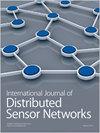流行的多类机器学习模型对中毒攻击的鲁棒性:经验教训和见解
IF 2.5
4区 计算机科学
Q3 COMPUTER SCIENCE, INFORMATION SYSTEMS
International Journal of Distributed Sensor Networks
Pub Date : 2022-07-01
DOI:10.1177/15501329221105159
引用次数: 1
摘要
尽管机器学习和人工智能应用取得了令人鼓舞的成果,但基于人工智能的系统的安全性是需要进一步探索的最严峻挑战之一。数据集中毒是一个严重的问题,可能会导致机器学习模型的损坏。攻击者通过将实际标签翻转为不正确的标签,将错误或错误标记的数据注入到数据集中。“鲁棒性”一词指的是机器学习算法应对敌对情况的能力。在这里,我们使用聚类方法来选择用于标签变化的训练样本,而不是随机翻转标签,以影响分类器在隔离中毒样本时的性能和基于距离的异常检测能力。根据我们在基准数据集上的实验,随机标签翻转可能会对分类器的准确性产生短期的负面影响。然而,异常过滤器平均会发现63%的异常。相反,所提出的基于聚类的翻转可能会注入休眠的中毒样本,直到中毒样本的数量足以严重影响分类器的性能;平均而言,相同的异常过滤器会发现其中的25%。在本实验中,我们还强调了关于流行的多类学习者对训练数据集中毒攻击的性能和鲁棒性的重要经验教训和观察结果,这些攻击包括:权衡、复杂性、类别、抗中毒性和超参数优化。本文章由计算机程序翻译,如有差异,请以英文原文为准。
The robustness of popular multiclass machine learning models against poisoning attacks: Lessons and insights
Despite the encouraging outcomes of machine learning and artificial intelligence applications, the safety of artificial intelligence–based systems is one of the most severe challenges that need further exploration. Data set poisoning is a severe problem that may lead to the corruption of machine learning models. The attacker injects data into the data set that are faulty or mislabeled by flipping the actual labels into the incorrect ones. The word “robustness” refers to a machine learning algorithm’s ability to cope with hostile situations. Here, instead of flipping the labels randomly, we use the clustering approach to choose the training samples for label changes to influence the classifiers’ performance and the distance-based anomaly detection capacity in quarantining the poisoned samples. According to our experiments on a benchmark data set, random label flipping may have a short-term negative impact on the classifier’s accuracy. Yet, an anomaly filter would discover on average 63% of them. On the contrary, the proposed clustering-based flipping might inject dormant poisoned samples until the number of poisoned samples is enough to influence the classifiers’ performance severely; on average, the same anomaly filter would discover 25% of them. We also highlight important lessons and observations during this experiment about the performance and robustness of popular multiclass learners against training data set–poisoning attacks that include: trade-offs, complexity, categories, poisoning resistance, and hyperparameter optimization.
求助全文
通过发布文献求助,成功后即可免费获取论文全文。
去求助
来源期刊
CiteScore
6.50
自引率
4.30%
发文量
94
审稿时长
3.6 months
期刊介绍:
International Journal of Distributed Sensor Networks (IJDSN) is a JCR ranked, peer-reviewed, open access journal that focuses on applied research and applications of sensor networks. The goal of this journal is to provide a forum for the publication of important research contributions in developing high performance computing solutions to problems arising from the complexities of these sensor network systems. Articles highlight advances in uses of sensor network systems for solving computational tasks in manufacturing, engineering and environmental systems.

 求助内容:
求助内容: 应助结果提醒方式:
应助结果提醒方式:


